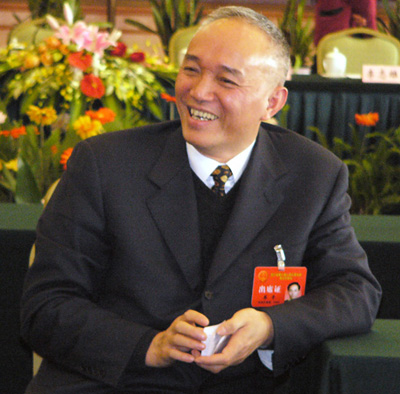Cyber-followers fuel 'micro-blog diplomacy'
 |
| Cai Qi |
"We are in an era in which the number of one's 'followers', instead of power, determines one's influence," So proclaimed "Lao Cai" (Old Cai), as he calls himself on his micro-blog. Outside of cyberspace, he is known as Zhejiang Provincial Party Standing Committee Member and Provincial Organization Department chief Cai Qi.
In recent months, Cai has attracted great attention in the micro-blogosphere on hot government accountability issues such as official car reform and a property declaration system for public servants. He even welcomed readers to supervise his personal property declaration.
Despite his large amount of power and responsibilities as chief of Zhejiang's provincial organization department, as a micro-blogger, Cai is amiable and humorous, and has a lot of followers. In a recent post to his followers, Cai wrote "Be sure to micro-blog me if you need help." In this message, he was able to combine his cyber identity with his political identity to reach out to his constituents.
It is a well-known fact that powerful and influential leaders both in China and other countries maintain micro-blogs. In blogs in China, it is common to distinguish social elites (including officials) from common users by a "V" sign next to their name.
Xiong Peiyun, European correspondent for the newsweekly Window of the South and a senior commentator at The Beijing News, recently wrote an article entitled "Each of us has a 'background'," referring to our social networks on the internet. The premise is easy to understand: a blogger with a huge amount of followers can serve as a tremendous force to influence others. In response to Cai's "micro-blog me if you need help" post, Cai's followers are likely to establish a connection with him and make him part of their own "background".
The word "background" to describe a social network in itself may sound a bit awkward. In context of real life, "background" might be construed as implying behind-the-scenes power governed by unspoken rules. However, in cyberspace, one's "background" suggests a network of "followers" who have been earned by on a basis of merit and trust. The Chinese public, for example, had a profound ability to assert their cyber-identities during the 2004-2006 televised "Super Girls" singing competition.
 0
0 







Go to Forum >>0 Comments